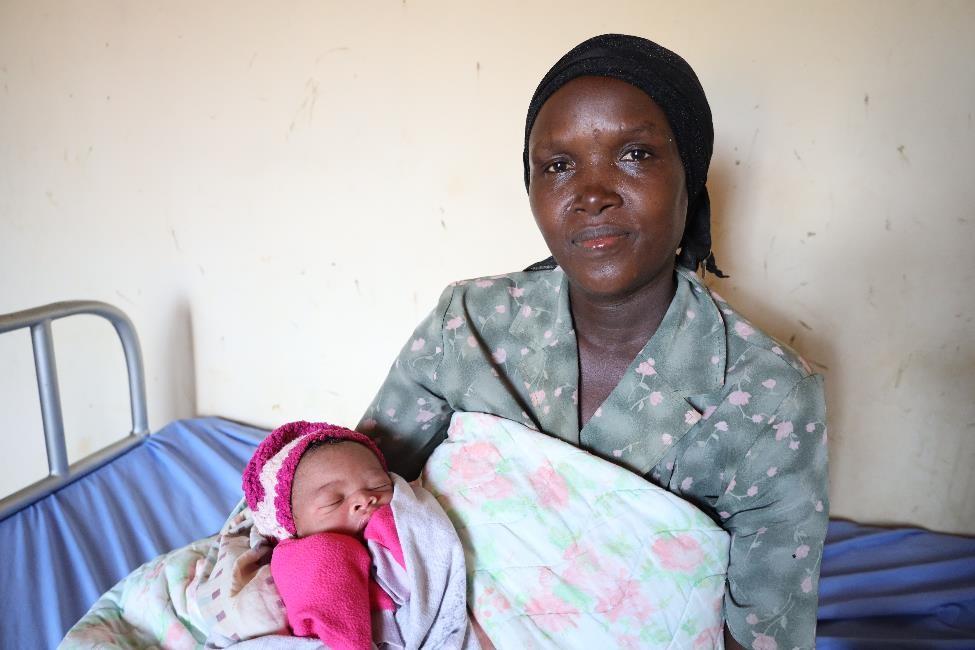Rwanda is improving access to health services by establishing “health posts” close to communities. This shortens the distances people need to travel to receive the care they need, as well as increasing access for specific specialized care.
One of the major barriers to achieving universal health coverage (UHC) in Rwanda is the need for people to walk long distances to receive essential health services.
Investments in health posts are paying off, with a near 50% reduction of travel time between 2010 and 2020. By 2024, the Government aims to establish 623 new health posts and reduce the time further to below 25 minutes.
The Ministry of Health identified a set of strategies to advance UHC in Rwanda including promoting health posts and integrating them into the country’s health sector strategic plan, with technical and financial support from WHO.
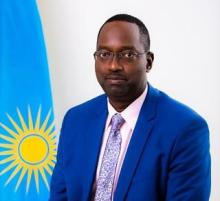
“Through an integrated and multi-sectoral approach, it has been possible to mitigate the impact of the COVID-19 pandemic. Lessons learnt from the response have strengthened and will continue to shape Rwanda’s efforts towards building a national resilient health system.”
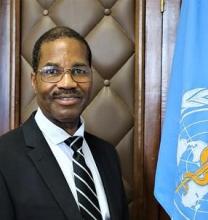
"Health Posts are a crucial part of the health system that can allow people in hard-to-reach areas to access primary health care and referral to higher level of care when needed. Rwanda will achieve universal health coverage faster by using such a community-based approach, especially considering that most people live in rural areas.”
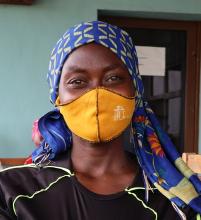
“I used to seek health services at Kabagore health centre in Juru, but this place is closer now. There is one and a half hours between Musovu and Juru. When you don’t even own a bicycle the situation can go bad really quickly before you can reach the health post.”
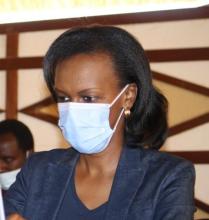
"Establishing the health posts programme is a very effective strategy to increase access to primary care, which meets 80% of the population’s health needs.”
THE LONG READ
Musanabera Claudine, 30, needed to bring her child who was presenting with a cough and fever to the Musovu Health Post in Bugesera District. Thankfully, a health post had already been established close to where they live. She recalled how difficult it was when she and others in her community had to walk for up to two hours to reach the nearest health centre in Juru or Mwogo.
“I used to seek health services at Kabagore health centre in Juru, but this place is closer now. There is one and a half hours between Musovu and Juru. When you don’t even own a bicycle the situation can go bad really quickly before you can reach the health post,” said Musanabera.
The Musovu Health Post in Bugesera District serves a population of 5,175, seeing between 30 to 100 patients per day, with a greater peak during the malaria period. It provides several outpatient health services, from noncommunicable disease check-ups, to pharmacy, laboratory testing, and maternal and child health services.
For pregnant women and their babies, this health post is life-saving. Previously, expectant mothers would have had to hire a motorcycle for a costly 2,500 Rwandan Francs (around $2.43) or walk for hours to deliver their babies safely in an institution. Now, with the health post closer to home, they can receive the services they need when and where they need them.
Rwanda has such a hilly terrain that locals call it ‘the land of a thousand hills’. With 83% of Rwandans living in rural areas, travel to a health facility has often been challenging for many families and communities. In 2010, the average walking time to the nearest health facility was 95 minutes. By 2020, this was halved to 47 minutes but many people still face difficulties in accessing the health services they need.
The government has made primary health care a priority to improve access to health services and make progress towards universal health coverage (UHC). Its goal is to ensure that by 2024, people need to walk less than 24 minutes to visit a health facility. This will be achieved through a network of health posts, such as the one in Musovu, located in communities nationwide. The Government is seeking to establish a public-private-partnership approach in which some health posts are managed by public health centres, some by non-governmental organizations and others by nurses from the private sector. This hybrid and harmonized approach could improve both the effectiveness and sustainability of the health post programme.
“Establishing the health posts programme is a very effective strategy to increase access to primary care, which meets 80% of the population’s health needs,” said Dr Nathalie Umutoni, Director of Clinical and Public Health Services Governance Unit at the Ministry of Health.


Health posts: bringing health services closer to the community
Health posts are intermediary primary care facilities located at the community level. They provide comprehensive primary care services to communities, and are located at a reasonable walking distance from people’s homes. They also serve as an interface between health centres and community health workers. The community health workers provide selected health services – mainly related to maternal and child health and malaria – on a voluntary basis in each of the 14,837 villages (the lowest administrative entity of the country) and in health centres, which operate in each of the 416 upper administrative levels of Rwanda.
With support from administrative districts, communities and partners, the Ministry of Health has, since August 2021, established 1,179 health posts that provide basic health services nationwide to underserved communities. The Ministry of Health has now established 21 new health posts, known as second-generation health posts, with upgraded services such as maternity, laboratory, dental care, ophthalmology, and circumcision in various areas of the country.
The plan is to scale up the programme throughout the country, with a focus on 15 border districts (out of 30 districts in total), which were found to be more at risk of health shock during the COVID-19 pandemic. The Government intends to establish 623 health posts in areas that still do not have facilities by 2024. This will happen under the country’s fourth Health Sector Strategic Plan 2018-2024, for which WHO, through the UHC Partnership, provided substantial technical, financial and coordination support.
UHC Partnership
Since 2018, WHO, through the UHC Partnership, has provided technical support to Rwanda’s Ministry of Health to identify what is needed to make health posts effective. WHO also worked with the Ministry to identify the key health services, such as maternity, laboratory, dental, ophthalmology and circumcision, that should be included in the upgraded package for the second-generation of health posts. This is to address simple and local medical needs within a reasonable walking distance of a patient’s home. Along with other efforts to strength the health system, this contributes towards Rwanda’s ambition to achieve universal health coverage.
“Health Posts are a crucial part of the health system that can allow people in hard-to-reach areas to access primary health care and referral to higher level of care when needed. Rwanda will achieve universal health coverage faster by using such a community-based approach, especially considering that most people live in rural areas,” said Dr Brian Chirombo, WHO Representative in Rwanda.
Rwanda is among the 115 countries and areas to which the UHC Partnership helps deliver WHO support and technical expertise in advancing universal health coverage through a primary health care approach. The Partnership is one of WHO’s largest initiatives on international cooperation for universal health coverage and primary health care. It is funded by the European Union, the Grand Duchy of Luxembourg, Irish Aid, the Government of Japan, the French Ministry for Europe and Foreign Affairs, the United Kingdom – Foreign, Commonwealth & Development Office, Belgium, Canada, Germany, and the Susan Thompson Buffett Foundation.

Building a resilient health system
Like other countries across the world, Rwanda’s health system came under tremendous pressure as a result of the COVID-19 pandemic, with national efforts focused on responding to the crisis. Continuous investments to strengthen Rwanda’s health system preparedness and responses to outbreaks and emergencies resulted in a National Preparedness and Response Plan to COVID-19, among others.
“Through an integrated and multi-sectoral approach, it has been possible to mitigate the impact of the COVID-19 pandemic. Lessons learnt from the response have strengthened and will continue to shape Rwanda’s efforts towards building a national resilient health system,” said Dr Daniel Ngamije, Minister of Health of Rwanda.

Impact of health posts
Investments made in health posts are paying off. From July 2019 to June 2020, the number of visits to health posts increased by 260%, while the number of visits to health centres reduced by 15%. One reason for this may have been the COVID-19 lockdown between March and May 2020 when the Government took steps to ensure people could obtain health services within walking distance from their homes. Access to health services was granted during the lockdown, but it was difficult for patients to use public transport. Therefore, health posts provided the opportunity to access care at a reasonable distance from home.
Positive results from the health post initiative include increased access to health services. This provides an opportunity for the health post programme to be scaled up nationwide using a phased approach. It will also ensure that ultimately, all Rwandans are within 25-minute walking distance of these essential services.
WHO, through the UHC Partnership, continues to work with the Ministry of Health to ensure that the quality of the package of services provided in these innovative health facilities adheres to international standards. With nearly 90% of the population covered by community-based health insurance (the main health financing scheme of the country) or private health insurance, the country is well placed to make progress towards providing primary health care.
WHO will also continue collaborating with the Ministry of Health and the Rwanda Social Security Board to improve the sustainability of the community-based health insurance scheme to make universal health coverage a reality.
__________________________________________________________________________________________________________________________________________________________________
Rwanda is strengthening its health system to protect its population from all health emergencies.
Rwanda, together with WHO, has been promoting the use of Simulation Exercises to help develop, assess and test functional capabilities of emergency systems, procedures and mechanisms to be able to respond to outbreaks or public health emergencies. Since the beginning of 2018, the Government has conducted 5 of these exercises to ensure adequate preparedness levels for an effective and timely response to a potential health emergency.
Rwanda has also been utilizing other tools of the International Health Regulations Monitoring and Evaluation Framework. In 2018, the country volunteered for a Joint External Evaluation (JEE) of its capacities to prevent, detect and respond to health emergencies. The following year, the country used the results of the JEE to develop a National Action Plan for Health Security.
To learn more, visit WHO’s Strategic Partnership for Health Security and Emergency Preparedness (SPH) Portal.
